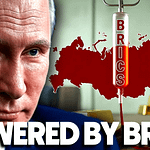The world is shifting, and BRICS nations are at the forefront of this transformation. South Africa and India, two dynamic members, are setting the stage for a new economic narrative that challenges traditional powers and promotes innovation.
BRICS: A New Economic Coalition
In recent years, BRICS has emerged as a critical player on the global stage. With rising geopolitical tensions and economic uncertainty, these nations are presenting themselves as an alternative to the established order dominated by Western powers. For instance, India's economic growth and South Africa's resource wealth allow these nations to collaborate and leverage each other's strengths effectively. By focusing on innovation, technology, and partnership, BRICS is creating avenues for sustainable growth that can shift the global balance of economic power.
Technological Innovations Driving Change
Technological advancement is a significant pillar supporting BRICS members' economic resilience. The integration of emerging technologies like artificial intelligence and blockchain is empowering nations to enhance their economic independence. For example, blockchain technology's decentralized nature enables BRICS nations to create transparent trade systems, reducing reliance on unpredictable Western markets. Similarly, AI applications are being explored to improve operational efficiency across various sectors. These technologies present opportunities for sustainable practices, signifying a shift towards smarter and more collaborative global economics.
Establishing Alternative Trade Pathways
One of the primary challenges for BRICS countries is the existing reliance on the dollar-centric global trade system. As trade dynamics evolve, there's a growing need to develop alternative pathways. This need highlights the potential of blockchain-based systems, which could provide efficient, accessible, and transparent trade environments, particularly for developing economies. By fostering innovative remittance systems and trade networks, countries like South Africa and India can reduce their exposure to fluctuations in the US economy while promoting intra-BRICS trade. This collaborative approach can redefine how trade flows globally and bolster economic resilience.
Africa's Emerging Economic Landscape
Historically, Africa’s economy has been shaped by external influences, often related to colonial resource extraction. However, a paradigm shift is underway, bringing forth a new relationship characterized by innovation and collaboration. As nations like India invest in African infrastructure, the growth potential is burgeoning. Investment and knowledge transfer become critical as Africa harnesses its resources and strengths. With a focus on local industries supported by BRICS, the continent could redefine its role in global economics and foster sustainable development pathways that ensure long-term growth.
Navigating Geopolitical Shifts
The evolving geopolitical climate necessitates economic coalitions that address regional challenges amid rising tensions, particularly between superpowers. The BRICS framework facilitates discussions that promote cooperation over competition. For instance, countries within BRICS can collaborate on developing alternative payment systems that lessen dependence on the dollar. By creating a robust economic environment, BRICS nations are establishing themselves as capable of navigating complexities in global trade relations. Consequently, they are fostering a multipolar world where diverse perspectives contribute to a more balanced global economy.
Cultural Integration for Economic Resilience
Economic integration in BRICS should not only focus on trade and technology but also on cultural and societal exchanges. Building bridges through shared values and understanding fosters lasting partnerships. By actively engaging citizens in governance and discussions, nations can ensure that economic policies reflect the collective will of the people. This inclusivity enhances accountability and encourages citizen ownership in the economic agenda. As BRICS nations emphasize cultural integration alongside economic initiatives, they pave the way for comprehensive and sustainable development that benefits all members.
Conclusion:
The future of the global economy is being shaped by BRICS nations through strategic partnerships, technological innovations, and new trade pathways. By fostering collaboration, these emerging economies can build resilience against global challenges and redefine their roles on the world stage.











